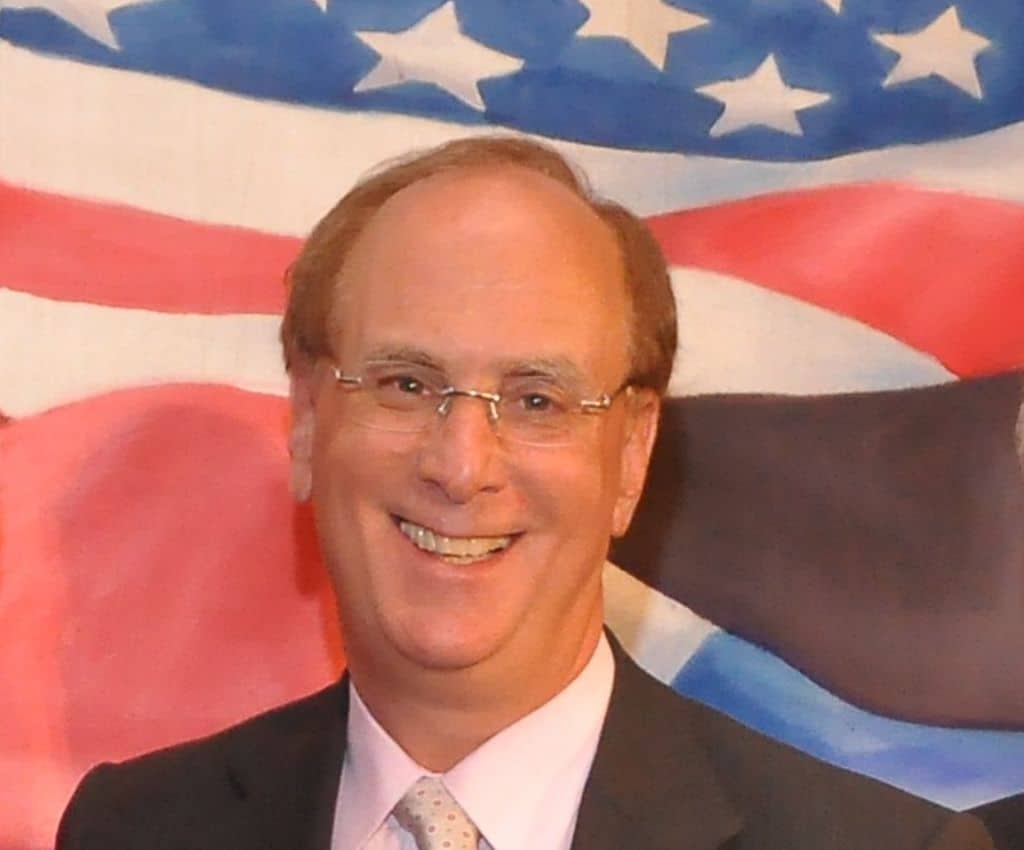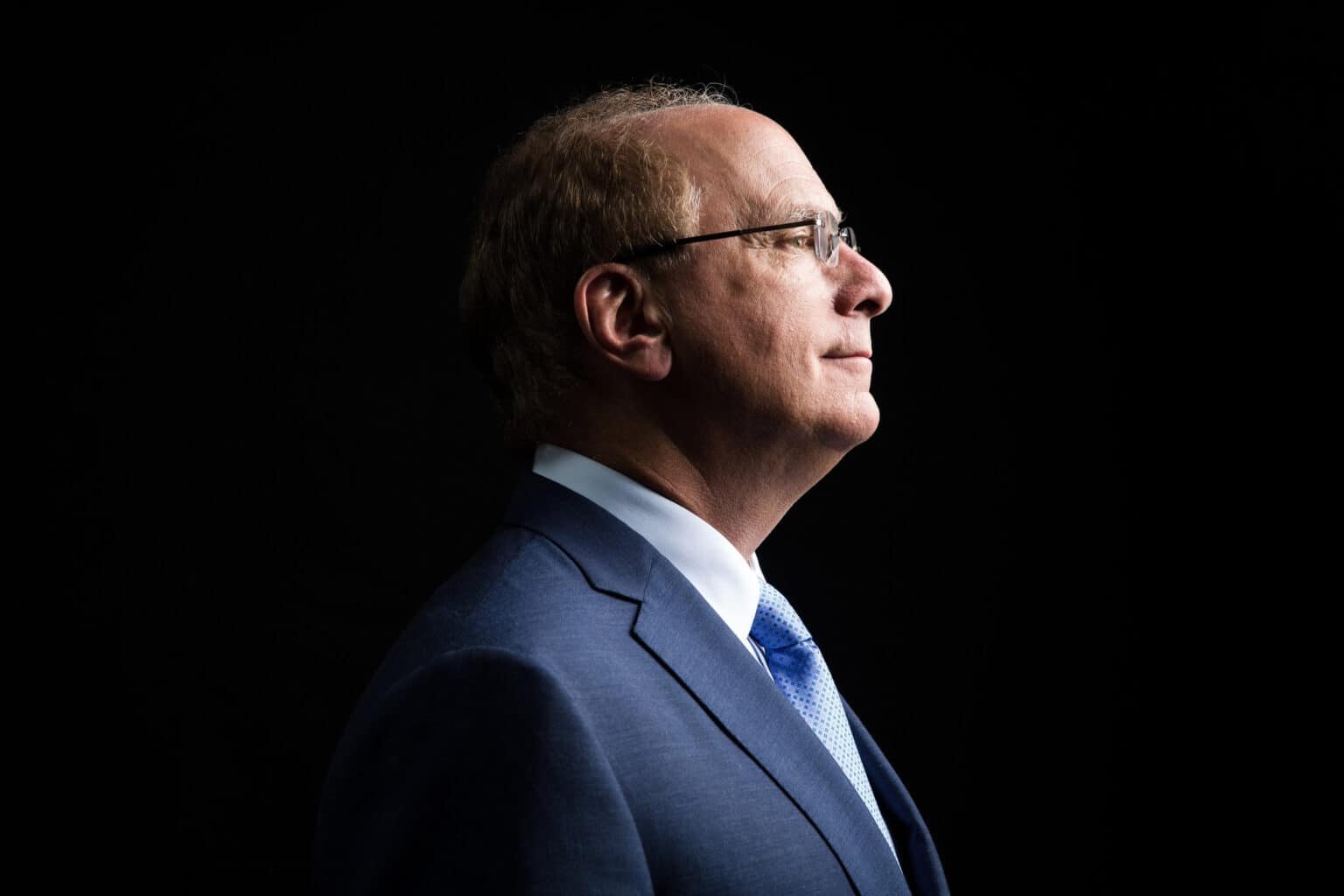Larry Fink's Jewish Background: Values & Leadership At BlackRock
Does the personal faith of a titan of global finance shape the very landscape of our financial world? The life and leadership of Laurence "Larry" Douglas Fink, the Chairman and CEO of BlackRock, one of the world's largest asset managers, suggest a resounding yes, with his Jewish heritage acting as a significant influence on his worldview and corporate strategy.
Laurence "Larry" Douglas Fink was born on November 2, 1952, in Van Nuys, Los Angeles, California, to Jewish parents. His father owned a shoe store, and his mother was an English professor. This upbringing, rooted in a Jewish household, appears to have instilled in him a deep understanding of ethical leadership, social responsibility, and the importance of community, values that have become increasingly apparent in his professional life.
Fink's leadership at BlackRock has often been framed by the intersection of finance and societal impact. He's known for incorporating his Jewish heritage into his leadership style, influencing his values and principles, particularly his emphasis on ethical leadership and social responsibility in business practices. This approach has led to both acclaim and scrutiny, with some viewing his actions as ethical stewardship and others as potentially overreaching into areas traditionally outside the purview of finance.
| Full Name: | Laurence "Larry" Douglas Fink |
| Born: | November 2, 1952, Van Nuys, California, USA |
| Parents: | Jewish parents (Father: Shoe store owner; Mother: English professor) |
| Education: | University of California, Los Angeles (UCLA) BA in Political Science |
| Career Highlights: |
|
| Net Worth: | Estimated at $120 million |
| Key Positions: |
|
| Awards & Recognition: |
|
| Philanthropy: | Major donor to Jewish causes and other charitable organizations |
| Religious Affiliation: | Raised in a Jewish household; has not publicly discussed his religious beliefs in detail. |
| Website: | BlackRock Official Website - Leadership |
As the head of BlackRock, Fink's decisions have a significant impact on global markets. His focus on incorporating environmental, social, and governance (ESG) factors into investment strategies is one example of this influence. His commitment to sustainability and ethical practices, as he's often said, is not just a business strategy but a reflection of his values. This approach aligns with the principles of Judaism, which emphasize ethical behavior, social justice, and community responsibility, principles that resonate with Fink's approach to finance and leadership.
The question of Larry Fink's religion is not just a matter of personal curiosity; it is an exploration of how deeply held beliefs might influence the world's financial future. Fink's Jewish background may have contributed to the development of his personal values, including his emphasis on ethics and responsibility in business. He has not spoken extensively about his religious beliefs in public, his actions often speak louder than words. This ambiguity, however, has led to considerable interest and speculation.
In 2018, Sam Zell, a billionaire known for his candid comments, reacted with surprise to Fink's efforts to promote "stakeholder capitalism." This type of restructuring of our economic system has become a central tenet of Fink's leadership philosophy. It's a business approach where companies consider the interests of all stakeholders, not just shareholders. This concept of considering all stakeholders may also be considered in the Jewish context.
Fink's involvement with Jewish organizations, such as the Jewish Museum and the American Jewish Committee, further highlights his commitment to his heritage and the values it represents. He is a staunch supporter of ethical practices, social justice, and community responsibility. He has made philanthropic contributions to Jewish causes and other charitable organizations.
The influence of his upbringing is also evident in his approach to corporate leadership. Fink is a board member of several Jewish organizations. He often emphasizes the importance of ethics and responsibility in business, principles that align with the values of Judaism.
BlackRock's headquarters in Manhattan has been the site of protests, with demonstrators demanding that Fink and the firm defund the fossil fuel industry. His decisions are of global significance; his opinions and decisions can significantly impact global markets. Fink's commitment to sustainability and ethical practices is influencing the future of finance.
Larry Fink's career in finance has been defined by strategic thinking and innovative approaches, all deeply influenced by his upbringing and values. His career began at First Boston, gaining essential experience. He co-founded BlackRock in 1988 under the Blackstone Group and later led its merger with Merrill Lynch Investment Managers in 2006, dramatically increasing its asset management portfolio. His personal beliefs remain somewhat of a mystery, and his public life reflects a deliberate focus on his firm's mission, with the company growing its ESG-focused investments. He has been named one of the world's best CEOs by Barron's for 14 consecutive years.
BlackRocks role as an asset manager means Fink has a unique perspective. He has clients, employees, and stakeholders across cultures, religions, and ideologies. This global context creates the grounds for extraordinary leadership. The values that appear to underpin Fink's actions are rooted in his upbringing and the teachings of his faith.
While the specifics of his personal religious practices remain private, the broader values of Judaismethical behavior, social justice, and a sense of communityare evident in his professional life. This emphasis on ethical leadership and corporate responsibility, coupled with his embrace of stakeholder capitalism, reflects the influence of his Jewish heritage.
The impact of Fink's leadership extends beyond the financial realm. He is also a member of the Council on Foreign Relations. His engagement with global issues underscores the interconnectedness of finance, social responsibility, and personal values. This global context creates the grounds for extraordinary leadership on Larry Fink's part.
His influence is also felt in the political sphere. Fink supported Barack Obama's presidential campaign in 2008. He also supports the New York City Police Foundation. Following the murder of George Floyd and the national protests, the nonprofit organization Color of Change called on Fink to address racial injustice.
The fact that Jewish youth and rabbis were arrested while shutting down BlackRock's headquarters in NYC to call for defunding fossil fuel industries demonstrates the varied perspectives on Finks actions and the complex intersection of finance, social justice, and faith.
In conclusion, the life and career of Larry Fink offer a compelling case study of how personal beliefs can shape professional endeavors. His Jewish background significantly influences his approach to leadership and corporate responsibility. As the CEO of BlackRock, his commitment to sustainability and ethical practices not only aligns with his upbringing but also shapes the future of finance in a rapidly changing world.


